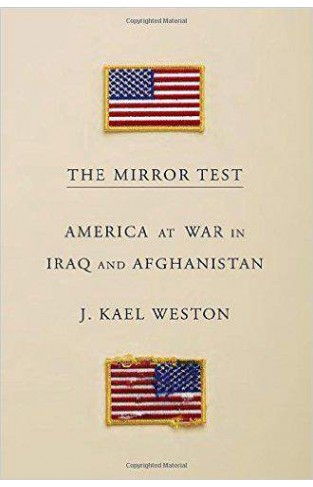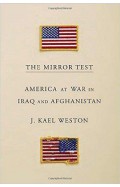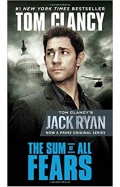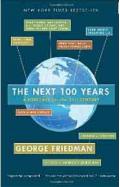- Home
- Books
- Categories
- Non Fiction
- Religion & Spirituality
- The Mirror Test: America at War in Iraq and Afghanistan
The Mirror Test: America at War in Iraq and Afghanistan
By: J. Kael Weston
-
Rs 1,756.00
- Rs 2,195.00
- 20%
You save Rs 439.00.
Due to constant currency fluctuation, prices are subject to change with or without notice.
A powerfully written firsthand account of the human costs of conflict.
J. Kael Weston spent seven years on the ground in Iraq and Afghanistan working for the U.S. State Department in some of the most dangerous frontline locations. Upon his return home, while traveling the country to pay respect to the dead and wounded, he asked himself: When will these wars end? How will they be remembered and memorialized? What lessons can we learn from them?
These are questions with no quick answers, but perhaps ones that might lead to a shared reckoning worthy of the sacrifices of those—troops and civilians alike—whose lives have been changed by more than a decade and a half of war.
Weston takes us from Twentynine Palms in California to Fallujah in Iraq, Khost and Helmand in Afghanistan, Maryland, Colorado, Wyoming, and New York City, as well as to out-of-the-way places in Iowa and Texas. We meet generals, corporals and captains, senators and ambassadors, NATO allies, Iraqi truck drivers, city councils, imams and mullahs, Afghan schoolteachers, madrassa and college students, former Taliban fighters and ex-Guantánamo prison detainees, a torture victim, SEAL and Delta Force teams, and many Marines.
The overall frame for the book, from which the title is taken, centers on soldiers who have received a grievous wound to the face. There is a moment during their recovery when they must look upon their reconstructed appearance for the first time. This is known as “the mirror test.” From an intricate tapestry of voices and stories—Iraqi, Afghan, and American—Weston delivers a larger mirror test for our nation in its global role. An unflinching and deep examination of the interplay between warfare and diplomacy, this is an essential book—a crucial look at America now, how it is viewed in the world and how the nation views itself.
| Book | |
| What's in the Box? | 1 x The Mirror Test: America at War in Iraq and Afghanistan |
A powerfully written firsthand account of the human costs of conflict.
J. Kael Weston spent seven years on the ground in Iraq and Afghanistan working for the U.S. State Department in some of the most dangerous frontline locations. Upon his return home, while traveling the country to pay respect to the dead and wounded, he asked himself: When will these wars end? How will they be remembered and memorialized? What lessons can we learn from them?
These are questions with no quick answers, but perhaps ones that might lead to a shared reckoning worthy of the sacrifices of those—troops and civilians alike—whose lives have been changed by more than a decade and a half of war.
Weston takes us from Twentynine Palms in California to Fallujah in Iraq, Khost and Helmand in Afghanistan, Maryland, Colorado, Wyoming, and New York City, as well as to out-of-the-way places in Iowa and Texas. We meet generals, corporals and captains, senators and ambassadors, NATO allies, Iraqi truck drivers, city councils, imams and mullahs, Afghan schoolteachers, madrassa and college students, former Taliban fighters and ex-Guantánamo prison detainees, a torture victim, SEAL and Delta Force teams, and many Marines.
The overall frame for the book, from which the title is taken, centers on soldiers who have received a grievous wound to the face. There is a moment during their recovery when they must look upon their reconstructed appearance for the first time. This is known as “the mirror test.” From an intricate tapestry of voices and stories—Iraqi, Afghan, and American—Weston delivers a larger mirror test for our nation in its global role. An unflinching and deep examination of the interplay between warfare and diplomacy, this is an essential book—a crucial look at America now, how it is viewed in the world and how the nation views itself.
The Mirror Test: America at War in Iraq and Afghanistan
By: J. Kael Weston
Rs 1,756.00 Rs 2,195.00 Ex Tax :Rs 1,756.00
Zubin Mehta: A Musical Journey (An Authorized Biography)
By: VOID - Bakhtiar K. Dadabhoy
Rs 840.00 Rs 1,050.00 Ex Tax :Rs 840.00
The Next 100 Years A Forecast For The 21st Century
By: George Friedman
Rs 3,795.00 Ex Tax :Rs 3,795.00
Myths Illusions and Peace: Finding a New Direction for America in the Middle East
By: Dennis Ross
Rs 1,095.00 Ex Tax :Rs 1,095.00
The Origins of Political Order From Prehuman Times to the French RevolutioN
By: Francis Fukuyama
Rs 3,895.00 Ex Tax :Rs 3,895.00
Manning Up: How the Rise of Women Has Turned Men into Boys
By: Kay Hymowitz
Rs 995.00 Ex Tax :Rs 995.00
The Obama Syndrome: Surrender At Home War Abroad
By: Tariq Ali
Rs 1,036.00 Rs 1,295.00 Ex Tax :Rs 1,036.00
The Quest For Meaning: Developing A Philosophy Of Pluralism
By: Tariq Ramadan
Rs 1,116.00 Rs 1,395.00 Ex Tax :Rs 1,116.00
The Next 100 Years A Forecast For The 21st Century
By: George Friedman
Rs 3,795.00 Ex Tax :Rs 3,795.00
No recently viewed books available at the moment.
Zubin Mehta: A Musical Journey (An Authorized Biography)
By: VOID - Bakhtiar K. Dadabhoy
Rs 840.00 Rs 1,050.00 Ex Tax :Rs 840.00
The Mirror Test: America at War in Iraq and Afghanistan
By: J. Kael Weston
Rs 1,756.00 Rs 2,195.00 Ex Tax :Rs 1,756.00
The Next 100 Years A Forecast For The 21st Century
By: George Friedman
Rs 3,795.00 Ex Tax :Rs 3,795.00














-120x187.jpg?q6)








-120x187.jpg?q6)






